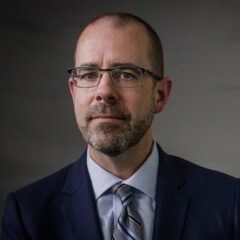(RNS) — Earlier this summer, I met a brave activist from Myanmar visiting Washington, D.C., to shine a light on religious persecution unfolding in his country. As a member of the Chin ethnic group and a Christian, he spoke about how the country’s military junta uses ethnic and religious themes to justify attacks against anyone resisting the junta’s rule.
The nexus of religion, ethnicity and violence in Myanmar is, sadly, far from unique. And it’s why the U.S. Institute of Peace is needed to better understand how to promote peace and stability around the world.
USIP has worked at the intersection of religion, peace and security for decades. However, it has been shuttered by the Trump administration’s Department of Government Efficiency, resulting in the termination of important programs and the loss of experienced staff. The closure is before the courts, but the White House budget also advocates for its closure.
Ending USIP is a mistake, as the institute’s extensive experience has provided U.S. policymakers from both parties and frontline practitioners with best practices for peace building. Founded in 1984 with the support of American faith groups and veterans, the institute has addressed a range of issues focused on promoting peace and stability. It is a cost-effective means of advancing American values and interests.
I’ve partnered with USIP for years, both while I served in government and for the past five years in an advisory role. I’ve seen its research and analysis, combined with its convening power, advance core American interests in ways impossible for government agencies.
Importantly, USIP understands the importance of integrating religious peacemakers with religious freedom advocates, exploring how they reinforce common efforts to end violent conflicts. USIP’s work on religion, peace and security is the institute’s oldest thematic focus, dating back more than three decades.
While the practical impacts of religion on peace building are obvious, the benefits of religious freedom are no less profound. In conflict zones, an atmosphere respecting freedom of religion or belief can facilitate dialogue about crucial, sometimes painful, perspectives without fear of reprisal. Environments of religious freedom can thus bridge divides, reduce tensions and protect religious minorities. Peaceful pluralism that supports religious freedom can build cohesive societies, lessening the likelihood of violent extremism or terrorism. Studies indicate that human flourishing is best achieved when all people are free to believe — or not believe — according to their conscience and to live out those convictions without fear of persecution.
In the challenging contexts of conflict and division, USIP has worked to connect stakeholders with religious actors. In Nigeria, for example, USIP partnered with Muslim and Christian leaders to develop joint peace-building strategies, leading to the formation of local peace committees that successfully mediated disputes and reduced intercommunal violence victimizing Christians. Institute programs have championed the inclusion of religious actors in formal peace processes and facilitated peer-to-peer exchanges among women of faith across Asia, Africa and the Middle East, as well as supported religious leaders in peace processes in countries like Colombia, Ghana, Sudan and Ukraine.
However, officials often overlook the potential of religious leaders to foster durable peace in conflict zones. In response, USIP has provided U.S. policymakers — at the State Department, in Congress and elsewhere — with best practices for integrating religious representatives into conflict prevention and stabilization efforts. The institute has worked across administrations on safeguarding the rights of religious minorities and promoting religious freedom, including hosting part of the Ministerial to Advance Religious Freedom in 2018 and 2019, and convening a bipartisan working group on international religious freedom, which I co-chaired.
Additionally, USIP recognizes that U.S. military operations often occur in faith-infused environments, requiring the military to be equipped with the knowledge and skills necessary to navigate religious dynamics. Before its abrupt closure, USIP was partnering with senior military chaplains to develop training programs that give chaplaincy corps tools to advise commanders more effectively on diverse religious landscapes. These efforts help ensure military operations abroad respect faith-based sensitivities and contribute to stability rather than unrest.

Knox Thames. (Courtesy photo)
By integrating faith actors into peace-building frameworks, USIP has helped chart a path for how the U.S. can defend human dignity and religious freedom while laying the groundwork for more cohesive, just and peaceful communities. Religious groups, such as those that helped establish the institute, can continue to advocate for this unique American institution that promotes peace and religious freedom. As religiously fueled conflicts continue to claim lives and force people to flee, USIP is needed to help policymakers chart a way forward.
(Knox Thames is a former diplomat who served in the Obama and Trump administrations as a special envoy for religious minorities in the Middle East and South Asia, and the author of “Ending Persecution: Charting the Path to Global Religious Freedom.” The views expressed in this commentary do not necessarily reflect those of Religion News Service.)



